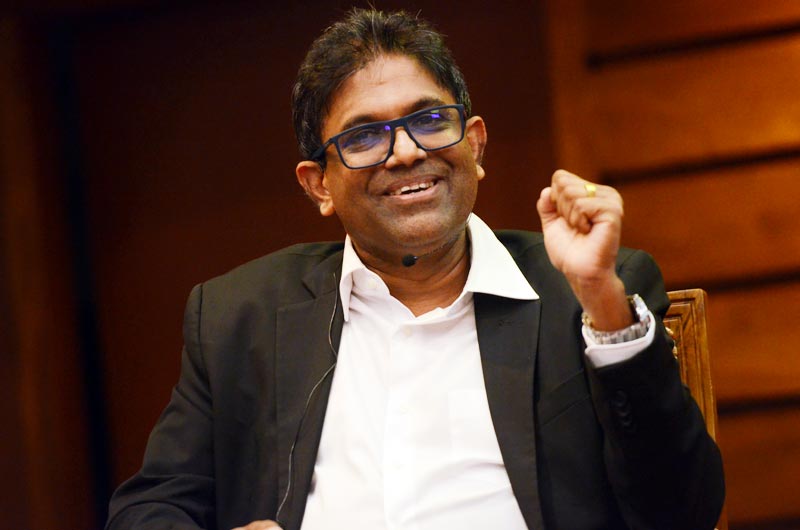Tuesday Feb 17, 2026
Tuesday Feb 17, 2026
Monday, 13 May 2024 03:05 - - {{hitsCtrl.values.hits}}

Standard Chartered Bank Sri Lanka CEO Bingumal Thewarathanthri
By Charumini de Silva
Standard Chartered Bank Sri Lanka Chief Executive Officer Bingumal Thewarathanthri last week outlined the broader impacts of external debt restructuring, highlighting the anticipated sovereign upgrade and its ramifications for the banking sector and trade dynamics.
Speaking at a panel discussion ‘Sustaining Stability’ organised by the Central Bank expressed optimism regarding the debt restructuring process, anticipating a minimum one-notch upgrade in sovereign ratings, which could translate to a 2-3% improvement within 2-3 weeks following the bond exchange.
“This upgrade is significant for revitalising the banking sector, as it would restore confidence among agencies and banks that were previously hesitant to engage in trade with Sri Lanka,” Thewarathanthri added.
He elaborated on the challenges faced by the banking sector during the default period, citing elevated real interest rates and restrictive trade conditions due to high risk perceptions.
Thewarathanthri underscored the shift expected post-restructuring, with reduced pricing for real-world assets (RWAs) and export credit agencies (ECAs), facilitating smoother trade operations and mitigating cash flow constraints.
Anticipating a stronger rupee initially post-restructuring, he cautioned against complacency, noting the imminent rise in the import bill and potential pressure on the currency.
“This is a positive indicator of economic recovery, particularly for the service sector, which constitutes a significant portion of Sri Lanka’s GDP,” he added.
In terms of international market dynamics, Thewarathanthri drew parallels with other emerging markets’ experiences post-default, stressing the importance of staying the course with the IMF program for stability.
He advocated for targeted stimulus measures to bolster growth sectors. “We need to seriously look at where the growth is coming from. We might have to look at targeted stimulus. I am not talking about giving incentives to everybody but targeted incentives for growth sectors would be critical,” he explained.
To mitigate the impact of brain drain, he asserted the need for sustainable policies driven by data and careful consideration.
Thewarathanthri urged policymakers to maintain an open-minded approach to negotiation, recognising the complexities of balancing fiscal reform with economic growth amidst political uncertainties.
He cautioned against reverting to past practices of indiscriminate subsidies, advocating for data-driven decision-making to steer Sri Lanka towards sustainable growth.